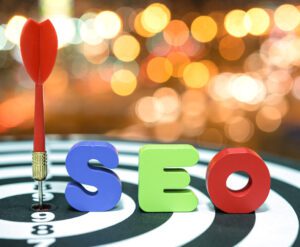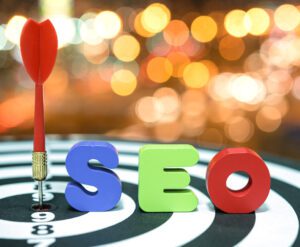Have you ever noticed how advertisements on your screen are incredibly tailored to your interests? This is not a coincidence. The advancement of artificial intelligence (AI) has completely changed the marketing world, allowing for personalized ads and recommendations to an unprecedented level. Through analyzing large amounts of data on consumer behavior, AI algorithms can predict what you are likely to purchase, what you are interested in, and even what you may need before you realize it yourself. This has revolutionized how companies approach marketing, enabling them to create targeted campaigns that directly appeal to each customer. However, with this power comes responsibility and concerns about the ethics of using AI for personalized marketing.
In today’s modern era of technology, marketing has shifted from conventional approaches to becoming a data-focused, customized, and effective process. A major factor propelling this change is Artificial Intelligence (AI). AI is reshaping marketing, empowering companies to gain deeper insights into customers, develop precise marketing strategies, and base decisions on data analysis. The integration of artificial intelligence has significantly transformed the marketing landscape, empowering marketers with powerful tools to understand, engage, and delight customers in more personalized and efficient ways. As AI continues to evolve, its impact on marketing will only deepen, driving innovation and reshaping the future of customer engagement and brand experiences. In this article, we will delve into the role of AI in personalized marketing, examining both the advantages and the potential drawbacks of this technology.
Importance of personalized marketing strategies
Personalized marketing is a strategy that involves tailoring marketing messages and offerings to individual customers based on their preferences, behaviors, and demographics. This approach allows businesses to create more targeted and relevant campaigns that resonate with customers more personally.
Personalized marketing is important because it helps businesses build stronger customer relationships, increase customer loyalty, and drive higher engagement and sales. By delivering customized experiences, businesses can show customers they understand their needs and preferences, leading to a more positive and memorable interaction. This can result in increased customer satisfaction and, ultimately, higher revenue for the business. Personalized marketing can help businesses stand out from competitors and differentiate themselves in a crowded marketplace.
In general, artificial intelligence and machine learning are valuable tools for businesses seeking to enhance the impact and efficiency of their marketing strategies. As these technologies advance, they are expected to influence future personalized marketing development more.
The Impact Of Artificial Intelligence On Marketing
Artificial intelligence has revolutionized the marketing industry by enabling marketers to tailor their campaigns to individual preferences and behaviors. This personalized approach has proven to increase customer engagement, build brand loyalty, and drive higher revenue. AI technology is transforming various aspects of marketing, including customer segmentation, content optimization, predictive analytics, and chatbots. Its integration has led to profound changes in consumer behavior analysis, personalized marketing strategies, and overall customer experience. These advancements are helping businesses better understand their target audience and deliver more relevant and impactful marketing campaigns.
The integration of artificial intelligence has transformed personalized marketing from a buzzword into a tangible reality. By harnessing the power of AI-driven insights, segmentation, content personalization, predictive analytics, automation, and optimization, businesses can deliver tailored experiences that resonate with individual customers on a deeper level. However, as AI continues to shape the future of marketing, marketers must navigate ethical considerations and prioritize transparency and privacy. Ultimately, AI’s strategic adoption in personalized marketing is the key to unlocking greater customer engagement, loyalty, and business success in the digital age. Here are some key aspects highlighting the impact of AI on marketing:
Data-Driven Insights:
AI algorithms thrive on data. They can process vast amounts of customer data, including demographics, purchase history, browsing behavior, and social media interactions, to extract meaningful insights. By analyzing this data, AI enables marketers to understand better their target audience’s preferences, interests, and buying patterns. These insights serve as the foundation for crafting highly personalized marketing campaigns.
Enhanced Customer Segmentation:
Traditional marketing segmentation techniques often rely on broad categorizations that may not capture the nuances of individual preferences. AI-powered segmentation, however, allows for granular segmentation based on predictive analytics and behavioral patterns. By segmenting customers more precisely, marketers can tailor their messages and offers to resonate with specific audience segments, increasing the likelihood of engagement and conversion.
Dynamic Content Personalization:
AI enables dynamic content personalization by delivering the right message to the right person at the right time. Marketers can create highly personalized content recommendations, product suggestions, and promotional offers in real-time through machine learning algorithms. Whether through email marketing, website recommendations, or targeted ads, AI-driven personalization ensures that each customer interaction feels relevant and timely.
Predictive Analytics and Forecasting:
AI excels in predictive analytics, forecasting future trends and behaviors based on historical data and ongoing interactions. By leveraging predictive modeling, marketers can anticipate customer needs and preferences, allowing them to tailor their marketing efforts proactively. From predicting future purchases to identifying potential churn risks, AI empowers marketers to stay one step ahead in delivering personalized experiences.
Automation and Optimization:
Automation is a key advantage of AI in personalized marketing. By automating repetitive tasks such as data analysis, campaign optimization, and customer communications, AI frees up valuable time for marketers to focus on strategy and creativity. Moreover, AI-driven optimization algorithms continuously refine marketing campaigns based on real-time performance data, ensuring maximum effectiveness and ROI.
Ethical Considerations:
While AI offers tremendous potential for personalized marketing, it raises important ethical considerations. Marketers must be mindful of data privacy concerns, transparency in data usage, and the potential for algorithmic bias. Striking the right balance between personalization and privacy is essential to building trust and maintaining positive customer relationships.
The Future Of Artificial Intelligence In Personalized Marketing
The future of artificial intelligence (AI) in personalized marketing holds immense potential for transforming the way businesses interact with their customers. As AI technology advances, we can anticipate more advanced and sophisticated AI-powered marketing campaigns that will be more successful in reaching and engaging customers. Some key trends we can expect to see in the future of personalized marketing with AI include:
Advanced Customer Segmentation: AI algorithms will enable businesses to segment their customer base more accurately and dynamically based on various parameters such as demographics, behavior, preferences, and purchasing history. This granular segmentation will allow for highly targeted marketing campaigns tailored to specific customer segments.
Predictive Analytics: AI-driven predictive analytics will empower marketers to more accurately anticipate customer behavior and preferences. By analyzing vast amounts of data, AI algorithms can forecast trends, identify potential churn risks, and recommend personalized product recommendations in real-time.
Hyper-Personalization: AI technologies will facilitate hyper-personalized marketing experiences by delivering content, offers, and recommendations tailored to each customer’s preferences and needs. From personalized email campaigns to customized website experiences, AI will enable businesses to engage customers on a one-to-one level at scale.
Dynamic Content Optimization: AI-powered content optimization tools will enable marketers to create and deliver dynamic content that adapts in real time based on individual user interactions and feedback. This includes personalized product recommendations, dynamically generated email content, and website landing pages optimized for each visitor.
Chatbots and Virtual Assistants: AI-driven chatbots and virtual assistants will play an increasingly important role in personalized marketing by providing immediate assistance and recommendations to customers across various touchpoints. These AI-powered conversational interfaces will enhance customer engagement and streamline purchasing by offering customized product recommendations and resolving customer queries in real time.
Sentiment Analysis and Emotional Intelligence: AI algorithms capable of analyzing customer sentiment and emotional cues will enable marketers to gauge customer satisfaction levels and tailor their messaging accordingly. By understanding the emotional context behind customer interactions, businesses can craft more empathetic and resonant marketing campaigns that foster stronger connections with their audience.
Ethical and Privacy Considerations: As personalized marketing becomes more prevalent, businesses must prioritize ethical use and safeguard consumer privacy. Transparency regarding data collection and usage and robust data protection measures will be essential to building and maintaining consumer trust in AI-driven personalized marketing initiatives.
In short, the future of AI in personalized marketing promises to revolutionize how businesses engage with their customers by delivering highly relevant, timely, and engaging experiences across various channels. By harnessing the power of AI technologies, businesses can unlock new growth opportunities, enhance customer satisfaction, and stay ahead in an increasingly competitive marketplace.








